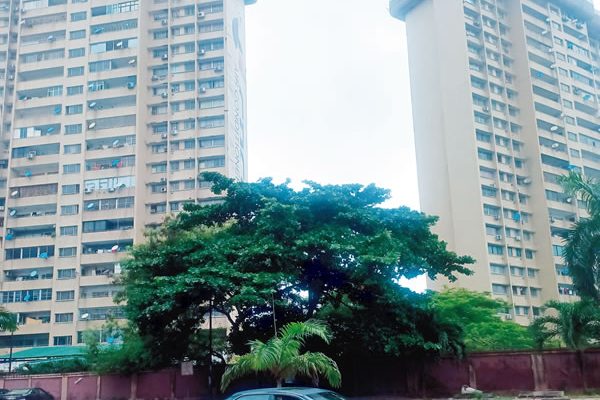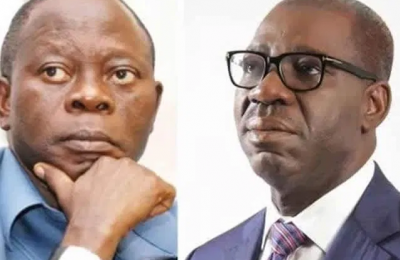The Federal Government has been urged to set aside some savings as revolving fund for the delivery of housing in the country.
According to an expert and Lagos-based estate surveyor and valuer, Mr. Umoru Yakubu Aiyegbeni, apart from housing delivery, the initiative could also serve as fund for prospective homeowners and innovative delivery of affordable housing on a large scale.
If revolving fund is made available by the government, he said this would significantly reduce housing deficit and provide added multiplier effect for economic development and improved quality of life for Nigerians.

Aiyegbeni added that this should be complemented by deliberate policies to decentralize and liberalize access to mortgage or housing loan with low or at interest rate not more than five percent.
He urged the government to fund the mortgage institutions sufficiently, while mandating commercial banks to use certain percentage of their loan portfolio to finance home ownership at concessionary rates.
In addition, he said that time has come to review policies for access to land and land titles.

According to him, it would also be appropriate to introduce incentives, waivers in order to encourage local manufacturing of building materials, technology driven affordable housing development.

Despite risk and volatility that has been with Nigerians in the past few years, Aiyegbeni explained that trends for 2024 and beyond have suggested that property investment in the major cities of Europe and Sub Sahara Africa is still on the rise, adding that real estate remains the best investment option.
He noted that with the move towards globalization increasing, capital flows across the world has increased.
In his article made available to Nigerian Tribune, he pointed out that due to the unstable macro-environment underpinned by political change, uncertainty, increasing terrorism attacks and the growing concern over the global bond and equities markets, capital-holders were out seeking the comfort and relative certainty of real estate.
“This has led many to seek investment in the European and Sub Sahara African property market, of which Nigeria ranks among the most promising pole of growth in the African continent and attracts numerous investors in the sector of hydrocarbon, energy, buildings etc.
“The most populous country in Africa with a population of over 200 million people, a largely privatized economy, advantageous taxation system, abundant natural resources, moderately low cost of labour and strategically located near many West African countries, the country is one of the largest markets across the globe,” Authentic said.
According to him, Nigeria offered a hot spot for real estate investment, saying this was the main reason the USA, China, United Kingdom, the Netherlands and France are among the main investors in Nigeria.
“Removal of subsidy on petroleum could be a catalyst for economic growth, infrastructure, housing and human development if expected savings are used to leverage the petroleum, renewable energy, infrastructure and the housing sector,” he said
“Nigeria will continue to attract funds over the medium term, even as we expect a large proportion of Foreign Direct Investment to be concentrated here. At the last count, Nigeria is the 145 least corrupt nation out of 180 countries, according to the 2023 Corruption Perceptions Index reported by Transparency International, while the Doing Business report of the World Bank 2023 shows a marginal increase in Nigeria›s overall EoDB satisfaction score to 5.69 on a 10-point scale from 5.45 recorded in the earlier report.
“Nigeria is therefore currently ranked 33 of the major economies, thanks to the improvement in credit access and the easing in business registering.
“One positive development is found in Nigerian government’s policy of pursuance of economic liberalisation, promotion of Public-Private Partnerships (PPP) and strategic alliances with foreign firms, making the country a reliable real estate investment haven,” the estate surveyor said.
Meanwhile, he said that Lagos, the business and commercial capital of the country has continued to grow, adding that it has already been envisaged that by 2025, the city would become the 11th largest urban system in the world, with an estimated population of over 25 million inhabitants.
With housing remaining a problem, Aiyegbeni explained that opportunity for investment in the city is tremendous.
“Added to Nigeria’s housing deficit which is estimated at about 21 million units with an additional two million units every year, investing in affordable property is a promising venture with a ready market.
“Heartwarming it is to note that foreign investors are ever expanding into the country looking for office space and buildings to set up businesses, shops and malls. So far, there is enough demand but not enough infrastructure for retailers. It is a fact that is often cited in various fora that Nigeria’s first upmarket mall was the Palm Shopping Mall, Lekki in 2006. Many more are needed to cater to the population and demand.
“In other words, a surge in demographic growth, combined with sustained development in Sub Sahara African countries of Nigeria, South Africa, Zambia, Ghana and Kenya and one or two others are combining to create urban markets of global scale, which is generating a need for significant investment in the region’s urban infrastructure,” the expert said.
According to him, as demand from corporations and consumers for modern office, retail and commercial infrastructure increases; Nigeria and these countries are entering a high-growth period of development.
He said: “It is a statement of fact that Nigeria is now firmly on the radar of a number of multinational corporations, hotel operators and investor groups. International investors are daily indicating interest in property investment in the country, and as market transparency and liquidity continues to improve, the potential return premium over more established markets is making a compelling long-term investment case for Nigeria.»
On solution to inadequate infrastructure financing in the country, Ayegbeni suggested private capital funding, urging that efforts must be geared at bringing investment inflow.
“For instance, large transportation projects in Nigeria require amounts beyond the capacity of the Federal and State governments in any single year, given competing priorities; therefore, external funding sources will be inevitable for long-term projects.
“The Federal Government will have to review its policies in order to enhance better business environment. Nigeria requires stable multi-year funding mechanisms independent of annual fiscal constraints to catalyze long-term funding from various sources namely banks, contractors, pensions, donor, agencies and the bond market.
“We need a national infrastructure acupuncture plan and we must choose where to put the pin at every time. All it need is better tariffs and regulations; public procurement approach; and the right investment climate,” the expert said.
READ ALSO: Protest: Police arrest 27 for defying curfew, looting in Plateau








